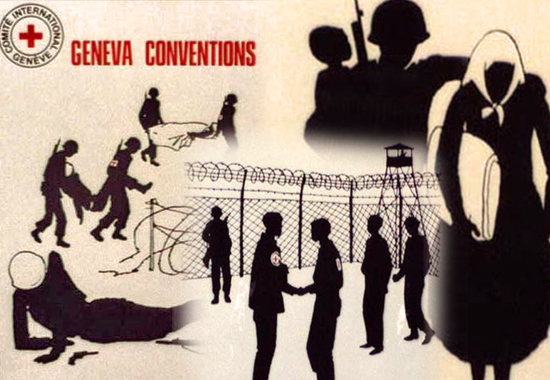
The Fourth Geneva Convention covers humanitarian protection for civilians in a war zone. It is part of customary international law, and as such is also binding on States which are not formally parties to it.
Article 1 states that
The High Contracting Parties undertake to respect and to ensure respect for the present Convention in all circumstances.
Article 33 states
No protected person may be punished for an offence he or she has not personally committed. Collective penalties and likewise all measures of intimidation or of terrorism are prohibited.
Pillage is prohibited.
Reprisals against protected persons and their property are prohibited.